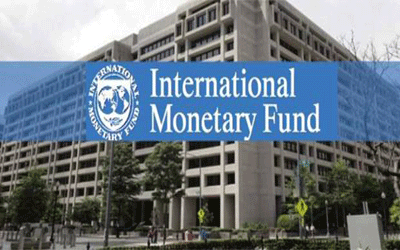
The International Monetary Fund (IMF) has recommended that Nigeria implement regulations requiring global cryptocurrency trading platforms to register or obtain licenses to operate within the country. This suggestion comes as part of the IMF’s latest staff report, following its 2024 Article IV consultation with Nigeria.
The IMF stressed the importance of establishing a robust regulatory framework to oversee the burgeoning cryptocurrency market in Nigeria. Such regulations would aim to ensure financial stability and protect investors. The IMF’s proposal aligns with global efforts to standardize cryptocurrency regulations and prevent illicit activities.
According to the report, cryptocurrency trading platforms should be subject to the same regulatory requirements as financial intermediaries, following the principle of “same activity, same risk, and same regulation.” This recommendation seeks to enhance oversight and accountability in the cryptocurrency sector.
Recent scrutiny of cryptocurrency trading platforms in Nigeria has raised concerns about potential manipulation of the local currency’s value in the foreign exchange market. The IMF’s recommendation reflects a broader effort to address these issues and safeguard the integrity of financial markets.
In response to the challenges posed by the rapid growth of foreign exchange trading platforms, Nigerian authorities have taken significant steps to address illicit financial activities associated with cryptocurrency transactions. Measures such as requiring international oil companies to hold a portion of repatriated oil receipts in Nigeria aim to maintain external stability and curb abuse of the financial system.
Additionally, regulatory bodies like the Securities and Exchange Commission (SEC) have introduced regulations for issuing, offering platforms, and custody of digital assets, signaling a shift towards regulating cryptocurrency rather than banning it. These regulations include capital requirements for crypto exchanges seeking licenses and strict compliance with KYC (Know Your Customer) and AML (Anti-Money Laundering) checks for banks facilitating cryptocurrency transactions.
The IMF’s recommendation underscores the importance of proactive regulatory measures to mitigate risks associated with cryptocurrency trading while fostering a conducive environment for innovation and investment in Nigeria’s digital economy.




продать аккаунт https://birzha-akkauntov-online.ru/
заработок на аккаунтах покупка аккаунтов
маркетплейс аккаунтов соцсетей гарантия при продаже аккаунтов
услуги по продаже аккаунтов https://ploshadka-prodazha-akkauntov.ru/
биржа аккаунтов магазин аккаунтов
маркетплейс для реселлеров https://kupit-akkaunt-top.ru/
маркетплейс аккаунтов маркетплейс аккаунтов соцсетей
Buy Pre-made Account Accounts for Sale
Find Accounts for Sale Website for Buying Accounts
Purchase Ready-Made Accounts Account market
Account Trading Platform https://buyaccountsmarketplace.com
Account Purchase Website for Buying Accounts
Buy and Sell Accounts Account marketplace
Buy Account Account marketplace
Buy accounts Account trading platform
Account Selling Service Account marketplace
Find Accounts for Sale Buy accounts
Account Selling Service Accounts for Sale
marketplace for ready-made accounts guaranteed accounts
sell pre-made account accounts marketplace
buy accounts verified accounts for sale
website for selling accounts account trading service
account buying service account market
account exchange account selling platform
buy and sell accounts socialaccountsdeal.com
gaming account marketplace profitable account sales
online account store verified accounts for sale
account market secure account purchasing platform
secure account purchasing platform guaranteed accounts
account marketplace account sale
account market gaming account marketplace
account exchange service marketplace for ready-made accounts
website for buying accounts https://accounts-for-sale.org/
account market account trading service
buy account account market
account trading platform website for buying accounts
account selling platform secure account purchasing platform
account trading service account trading
social media account marketplace account selling service
account trading service buy account
buy accounts buy account
online account store account exchange service
机器人是 电报中文版 的特色功能,可以自动化执行各种任务,如提醒、游戏等。
buy account buy pre-made account
gaming account marketplace accounts marketplace
guaranteed accounts ready-made accounts for sale
sell account account selling service
buy and sell accounts https://accounts-offer.org
account store https://accounts-marketplace.xyz
sell pre-made account https://buy-best-accounts.org/
buy pre-made account https://social-accounts-marketplaces.live
sell account buy accounts
account trading platform https://social-accounts-marketplace.xyz
secure account purchasing platform https://buy-accounts.space/
guaranteed accounts https://buy-accounts-shop.pro/
account trading platform accounts marketplace
account trading platform https://buy-accounts.live
marketplace for ready-made accounts https://accounts-marketplace.online
guaranteed accounts https://accounts-marketplace-best.pro
площадка для продажи аккаунтов akkaunty-na-prodazhu.pro
покупка аккаунтов https://rynok-akkauntov.top
продажа аккаунтов https://kupit-akkaunt.xyz/
продажа аккаунтов akkaunt-magazin.online
продать аккаунт купить аккаунт
продать аккаунт маркетплейсов аккаунтов
биржа аккаунтов akkaunty-optom.live
площадка для продажи аккаунтов online-akkaunty-magazin.xyz
биржа аккаунтов akkaunty-dlya-prodazhi.pro
маркетплейс аккаунтов https://kupit-akkaunt.online/
facebook ad account for sale https://buy-adsaccounts.work
buy facebook ad accounts https://buy-ad-accounts.click/
facebook account buy facebook ads account buy
buy facebook ad account buy facebook account for ads
buy fb account cheap facebook advertising account
fb accounts for sale https://buy-ads-account.work/
facebook ad account buy cheap facebook accounts
facebook accounts to buy buy old facebook account for ads
facebook account sale https://ad-accounts-for-sale.work
google ads reseller https://buy-ads-account.top
buy google agency account https://buy-ads-accounts.click
buy facebook account for ads buy facebook ad account
google ads reseller buy account google ads
buy aged google ads account buy google ads threshold account
buy google agency account buy aged google ads accounts
buy google ads agency account https://buy-account-ads.work
buy google ads account https://buy-ads-agency-account.top
buy google agency account https://sell-ads-account.click
google ads accounts for sale https://ads-agency-account-buy.click/
business manager for sale https://buy-business-manager.org
buy google ads agency account https://buy-verified-ads-account.work
business manager for sale https://buy-bm-account.org/
facebook bm for sale https://buy-business-manager-acc.org
facebook bm account https://buy-verified-business-manager-account.org
buy facebook verified business manager buy facebook verified business account
buy facebook business managers business-manager-for-sale.org
verified bm for sale https://buy-business-manager-verified.org/
business manager for sale https://buy-bm.org
buy verified facebook business manager buy business manager facebook
fb bussiness manager https://buy-business-manager-accounts.org
buy tiktok business account https://buy-tiktok-ads-account.org
tiktok ads account buy https://tiktok-ads-account-buy.org
buy tiktok ad account https://tiktok-ads-account-for-sale.org
tiktok ads agency account https://tiktok-agency-account-for-sale.org
buy tiktok ad account https://buy-tiktok-ad-account.org
tiktok ad accounts https://buy-tiktok-ads-accounts.org
tiktok ad accounts https://buy-tiktok-ads.org
buy tiktok ad account https://buy-tiktok-business-account.org
tiktok ads account for sale https://tiktok-ads-agency-account.org
buy facebook ad account accounts for sale account exchange service
buy aged facebook ads account secure account purchasing platform guaranteed accounts
探索Telegram的强大功能!访问TG中文版下载,了解其加密聊天、大型群组、频道和Bot生态系统。体验更强大的通讯工具。
Experience action-packed free games that never get boring Hawkplay